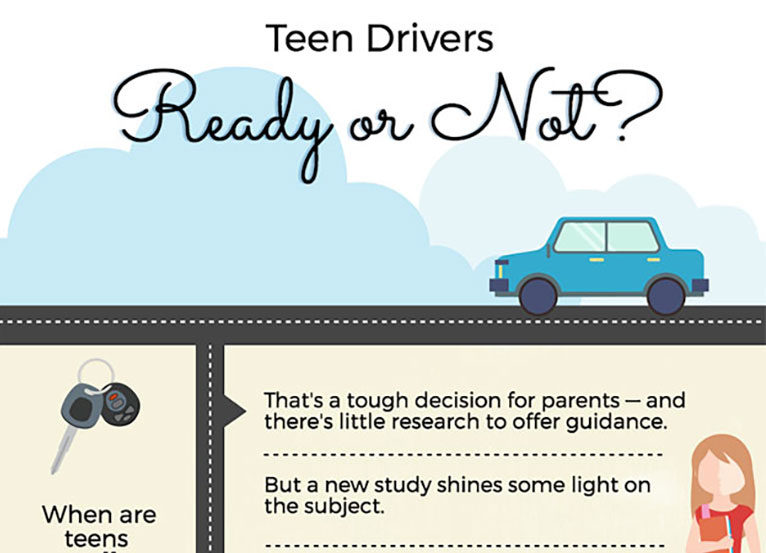Parents’ perceptions of their teens’ driving skills not always accurate, study finds

Birmingham, AL – Parents tend to believe their teen drivers are as safe as – or slightly safer than – drivers in general, according to a recent study from the University of Alabama at Birmingham.
Researchers surveyed more than 450 families over a 24-week period and followed up with them for one year from the time their teens received a learner’s permit through the first few years of them having a driver’s license. They evaluated if the amount of time it took for teens to get a license was affected by their parents’ perceptions of the teens’ readiness to drive, the amount of driving practice in different scenarios, and whether the family participated in an online parent-supervised driving intervention program. The researchers found that parents rated their teen’s readiness to drive based on three factors:
- Skill level compared with other teen drivers who had the same amount of driving experience
- Overall expertise, from “beginner” to “expert”
- Safety compared with other drivers in general
Parents rated their children’s driving expertise in the middle range of all drivers, according to the researchers. Statistics show teen drivers are more likely to be involved in a crash than other age groups, which indicates parents’ perceptions might not be aligned with reality about their young drivers’ skill levels.
However, the researchers noted that parents’ beliefs about overall safety were not related to how fast teens were licensed – licensing speed correlated with parents’ perceptions of their teens’ skills in comparison to their peers.
Researchers recommended parents focus not only on basic facts, such as vehicle maintenance and rules of the road, but also on higher-order skills, such as situational awareness, visual searching abilities, hazard anticipation and risk-management skills.
“Most behind-the-wheel license tests really just focus on the basics of how to operate a vehicle and the rules of the road,” Jessica Mirman, lead study author and an assistant professor in UAB’s Department of Psychology in the College of Arts and Sciences, said in a press release. “Those are necessary, but not sufficient, prerequisites for being a safe, independent driver.”
The study was published in March in the journal Health Psychology.
Post a comment to this article
Safety+Health welcomes comments that promote respectful dialogue. Please stay on topic. Comments that contain personal attacks, profanity or abusive language – or those aggressively promoting products or services – will be removed. We reserve the right to determine which comments violate our comment policy. (Anonymous comments are welcome; merely skip the “name” field in the comment box. An email address is required but will not be included with your comment.)

